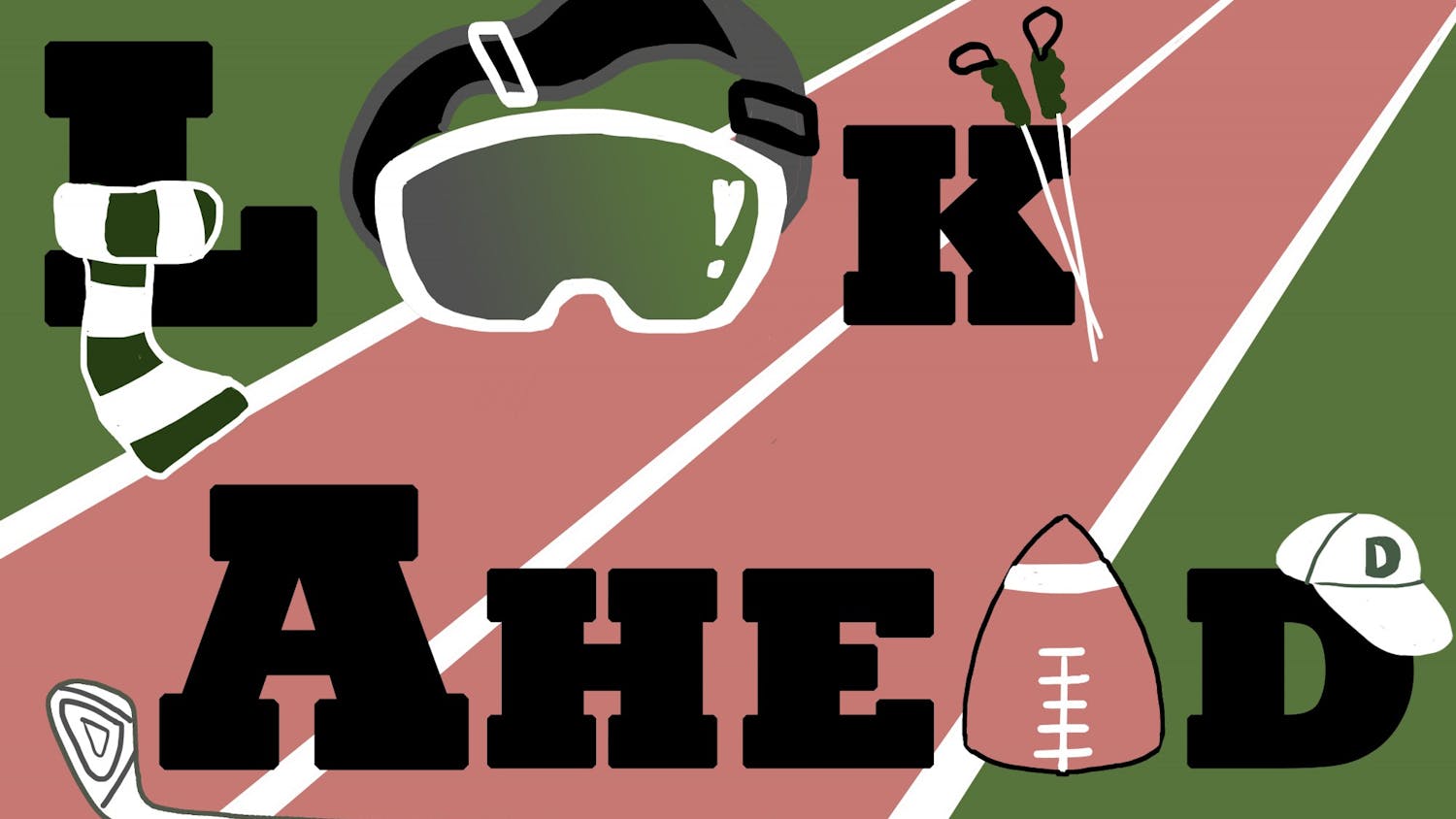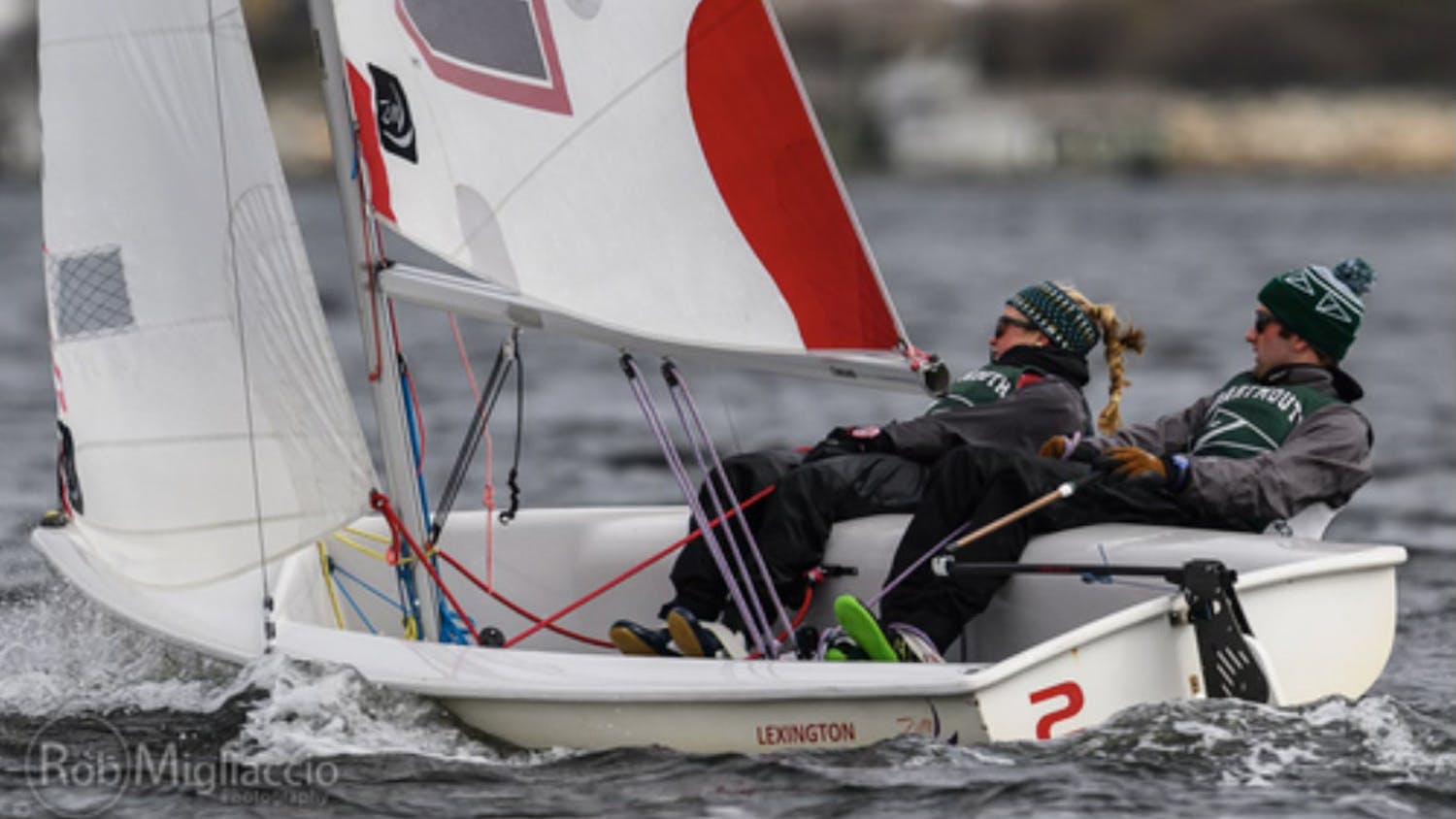As finals encroach and The Dartmouth’s winter term production comes to its close, I’d like to conclude this term’s run of “Pucks in Deep” where I began — with John Tavares’ free agent signing in Toronto. In my first column of the term, I wrote about Tavares’ homecoming to Toronto and its terrifying implications for Leafs Nation. As I sign off for the term, I’d like to consider Tavares’ signing from the opposite perspective — that of the New York Islanders, the team that drafted Tavares first overall in 2009 only to watch him leave in free agency last summer having won just one playoff series in his tenure with the Isles.
The easiest explanation for what’s happened since requires the invocation of Bill Simmons’ “Ewing Theory.” According to Simmons, who attributes the theory to his friend Dave Cirilli, the Ewing Theory comes into play when a given franchise’s dominant star, subject to the bulk of its fan and media attention, leaves the team — whether through free agency, trade or injury — prompting the media to write off that team’s chances for at least the following season. However, in true instances of the Ewing Theory, that team inexplicably improves without its star.
The name “Ewing Theory” goes back to Cirilli’s observation that Patrick Ewing’s teams — both at Georgetown University and in the NBA for the Knicks — seemed to play better during his absences from the lineup due to injury or foul trouble. As alternative examples, Simmons cites the 2000 Seattle Mariners (who traded away Ken Griffey, Jr. and before that Randy Johnson only to take home the American League Wild Card and win a first round series over the White Sox) and the Corleone family from “The Godfather” (who survived Sonny’s death and Vito’s near assassination, only to see Michael return from exile in Italy and breathe new life into the family).
To help quantify the Isles’ turnaround, last season, the team finished second-to-last in the Metropolitan Division with just 35 wins and 80 points in the standings. Last year, they surrendered the second most expected goals per 60 minutes in the league at 2.78. This year, through 64 contests, the Islanders have already eclipsed both those totals, with 37 wins and 81 standings points, good for the second-best mark in the Metro. After being one of the most porous defensive teams in the league a season ago, the Isles are among the stingiest defensive teams in the league this season, surrendering just 2.27 expected goals per game — the fourth best mark in the league.
Though the 2018-19 Islanders fit Simmons’ Ewing Theory mold perfectly, I think we can arrive at a more substantive explanation for their success having lost their franchise cornerstone. This explanation must begin with the arrival of new head coach Barry Trotz. Last season, Trotz guided the Washington Capitals to their first ever Stanley Cup championship. After that crown, Trotz demanded a pay raise, Caps’ owner Ted Leonsis declined and, just like that, Trotz was gone, inking a deal with the Islanders. The specifics of the deal have not been made public, but it has been reported to be worth at least $4 million per season.
Trotz’s contribution to the Caps, beyond the shiny and obvious one, was in many ways a stylistic one. Under Trotz, the high-flying Capitals developed the ability to play a tight-checking style within a rigid system. He turned the Caps’ offensive stars into more complete players, capable of making an impact with or without the puck. During the last season’s Cup run, the Caps adopted a 1-1-3 neutral zone trap that flummoxed the skilled and speedy Penguins, Lightning and Golden Knights in succession. In four seasons in Washington, Trotz made the playoffs every year, won the Metro in each of his final three seasons, won the President’s Trophy twice for best record in the league and, of course, captured the Stanley Cup.
In less than a full season in New York, Trotz has had much the same impact. Last season, the Islanders lacked any semblance of defensive structure, playing a pond-hockey style that relied on their skilled forwards to outscore opponents. It was fun hockey to watch but did not translate to victories.
Upon his arrival, Trotz turned the Isles into a defensive juggernaut, instituting a similar 1-1-3 neutral zone to the one that proved so effective in D.C. In today’s NHL, many teams are moving away from the old school tight-checking, dump-and-chase style of play in favor of the controlled zone entry, carrying the puck into the offensive zone without ever losing possession. Meanwhile, Trotz’s islanders have turned back the clock to perfection. They dump the puck in more often than any team in the league, looking to jump out to an early lead before smothering opponents with their tight defense of the neutral zone.
With all that out of the way, let’s return to the reason we’re discussing the Islanders in the first place. On Thursday night, John Tavares and the Maple Leafs returned to Nassau Coliseum. The historic home of the Islanders and the site of their early ’80s dynasty, the stadium had been out of commission for the final few seasons of the Tavares era with the team having been shut down in the 2015 playoffs following a first round loss to Barry Trotz and the Caps. This season, due to the poor fit of the Islanders in its new Brooklyn home at Barclays Center, the team has played a few games back in the Coliseum, and it just so happened that Tavares’ return is among them.
Leading into the return, Long Island’s Channel 12 news aired a segment entitled “Dear John,” featuring a few fans reading heartfelt letters to their former captain. In this video, grown adults appeared on the brink of tears over John Tavares’ choice to go home. I cannot do justice to this video in prose, so I’d highly recommend looking it up for yourself, but one highlight: “You turned us all down … you hurt us all.”
Now, I can understand disappointment or even resentment at a star’s departure in free agency, but the Islanders’ collective bitterness toward Tavares takes that resentment to new heights. I don’t mean to suggest that there wasn’t a single Islanders fan pleased for their former captain, especially given their own team’s success. However, as the Isles played a tribute to Tavares’ tenure on the Island on the Coliseum video board, the boos and chants of “A—h—” drowned out the Jumbotron audio.
ESPN’s Greg Wyshynski was kind enough to catalogue all of the chants directed by the Coliseum at Tavares. These ranged from the aforementioned vulgarities to “You’re a liar” to “We don’t need you.”
I find this last one great, as it seems peculiar to burn and otherwise deface jerseys of, direct jeers at and throw rubber snakes at someone whom you are pleased departed. On this point, another interesting moniker Isles’ fans have developed for Tavares is “Pajama Boy,” a reference to the now famous picture with which Tavares announced his signing in Toronto. In the picture, a young Tavares sleeps in a bed with Maple Leafs sheets. Notably absent from the picture are pajamas, but who am I to judge the ways in which Long Islanders work through their rage?
On the ice, the game was a perfect example of Barry Trotz hockey. The Islanders withstood an early push and goal from Toronto and tied up the game going into the first intermission. In the second, the Islanders barraged the Leafs with physicality and constant offensive pressure, netting three goals. In the game’s final frame, the Isles sat comfortably back in their rigid neutral zone, smothering any hope the Leafs had at a comeback and adding two more goals of their own for good measure.
In the end, the contest was just one regular season game among 82, but, for the Islanders — or at least their fans — it seems the season’s greatest work is done. For about three hours, the old Nassau Coliseum was as raucous as any venue in American sports. The Islanders and their fans showed their former captain that what he left behind is doing just fine.
At this point, I’d encourage Islanders fans to move on from their Tavares-bashing and start celebrating their upstart team led by Trotz. With less than 20 games to go, it seems a lock that Trotz will take home the Jack Adams as NHL coach of the year. I don’t think the Isles have the firepower to win more than a round in the postseason, but this is not cause for despair. Their prospect bank is rich — good reason for optimism for the future. Without a doubt, revenge was sweet, but it’s time to channel the same energy they invested in lampooning Tavares into their own team every night. The Isles have been at the league’s attendance cellar for years, and the NHL would be a more fun league if they could replicate Thursday night’s atmosphere for an 82-game season. As for “Pajama Boy,” the return to Long Island was not one to remember, but, as I said in my initial Tavares column, the success of his contract with the Leafs will be determined by whether he brings Lord Stanley back to Toronto for the first time since 1967, not a late February game in Long Island. Here’s to hoping we get Leafs-Islanders in the playoffs before too long.



